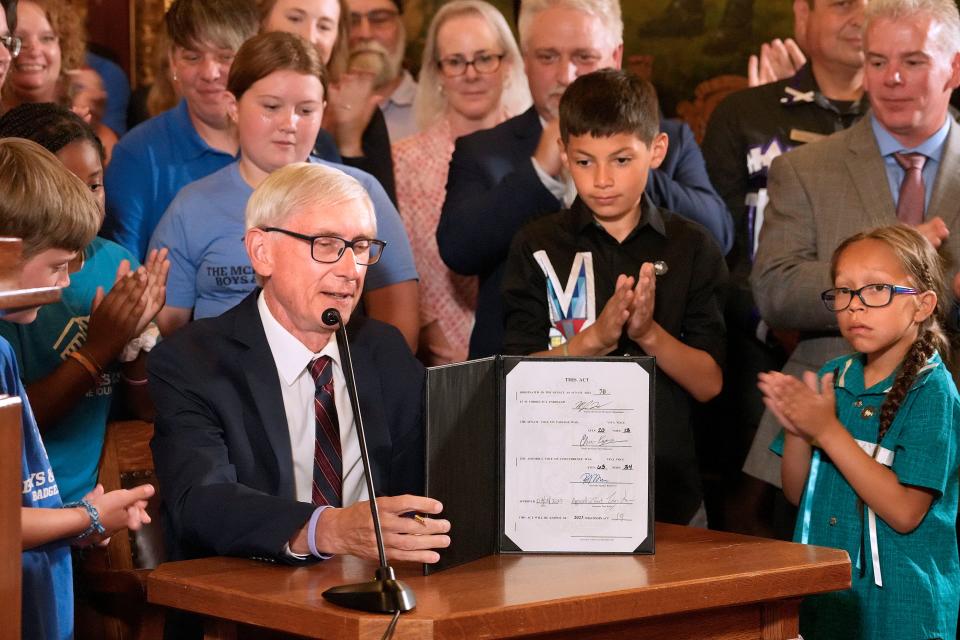Wisconsin governor gets creative with veto, increases public school funding for 400 years
- Oops!Something went wrong.Please try again later.
Wisconsin Gov. Tony Evers, a former public school educator, used his broad authority this week to sign into law a new state budget that increases funding for public schools – for the next four centuries.
Wisconsin governors have expansive partial veto power, and Evers got creative with his use of it in this budget. He crafted the four-century school aid extension by striking a hyphen and a "20" from a reference to the 2024-25 school year. The increase of $325 per student is the highest single-year increase in revenue limits in state history.
The surprise move will ensure districts' state-imposed limits on how much revenue they are allowed to raise will be increased by $325 per student each year until 2425, creating a permanent annual stream of new revenue for public schools and potentially curbing a key debate between Democrats and Republicans during each state budget-writing cycle.
Evers told reporters at a news conference in the Wisconsin State Capitol on Wednesday his action would "provide school districts with predictable long-term increases for the foreseeable future."

The veto was one of more than four dozen the Democratic governor made to reshape the $99 billion two-year state budget Republicans passed last week. Among the vetoes was the majority of the centerpiece of Republican lawmakers' budget plan: a $3.5 billion tax cut that focused relief for the state's wealthiest residents.
“Legislative Republicans worked tirelessly over the last few months to block Governor Evers’ liberal tax and spending agenda. Unfortunately, because of his powerful veto authority, he reinstated some of it today," Assembly Speaker Robin Vos, R-Rochester, said in a statement.
Now what? The Supreme Court killed student loan debt forgiveness.
Dan Rossmiller, who represents the Wisconsin Association of School Boards, said the permanent annual funding increase was "certainly appreciated." But Rossmiller said the impact of additional funding could vary by district and worried the increase wasn't enough to meet or exceed the rate of inflation for some districts.
"I wish the amount would have been higher," Rossmiller said. "With inflation at 40-year highs, it's really important to be able to attract and retain teachers and staff, and to be able to pay the increased costs of everything in a school district's budget."
Republican legislative leaders did not immediately say whether they would try to override Evers' budget action. Republicans failed to achieve a veto-proof supermajority in the Assembly in the November election, so any veto override would require three Democrats to join all Republicans in an override vote. Republicans could also schedule a vote when a handful of Democrats are absent.
Contributing: Tyler Katzenberger and Laura Schulte, Milwaukee Journal Sentinel; The Associated Press
This article originally appeared on Milwaukee Journal Sentinel: 400 years of school funding increases in Wisconsin after Evers' veto

